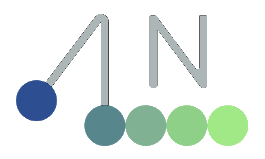newton.solvers.SolverFeatherstone#
- class newton.solvers.SolverFeatherstone(model, angular_damping=0.05, update_mass_matrix_interval=1, friction_smoothing=1.0, use_tile_gemm=False, fuse_cholesky=True)[source]#
Bases:
SolverBaseA semi-implicit integrator using symplectic Euler that operates on reduced (also called generalized) coordinates to simulate articulated rigid body dynamics based on Featherstone’s composite rigid body algorithm (CRBA).
See: Featherstone, Roy. Rigid Body Dynamics Algorithms. Springer US, 2014.
Instead of maximal coordinates
body_q(rigid body positions) andbody_qd(rigid body velocities) as is the case inSolverSemiImplicitandSolverXPBD,SolverFeatherstoneusesjoint_qandjoint_qdto represent the positions and velocities of joints without allowing any redundant degrees of freedom.After constructing
ModelandStateobjects this time-integrator may be used to advance the simulation state forward in time.Note
Unlike
SolverSemiImplicitandSolverXPBD,SolverFeatherstonedoes not simulate rigid bodies with nonzero mass as floating bodies if they are not connected through any joints. Floating-base systems require an explicit free joint with which the body is connected to the world, seenewton.ModelBuilder.add_joint_free().Semi-implicit time integration is a variational integrator that preserves energy, however it not unconditionally stable, and requires a time-step small enough to support the required stiffness and damping forces.
See: https://en.wikipedia.org/wiki/Semi-implicit_Euler_method
This solver uses the routines from
SolverSemiImplicitto simulate particles, cloth, and soft bodies.Example
solver = newton.solvers.SolverFeatherstone(model) # simulation loop for i in range(100): solver.step(state_in, state_out, control, contacts, dt) state_in, state_out = state_out, state_in
- __init__(model, angular_damping=0.05, update_mass_matrix_interval=1, friction_smoothing=1.0, use_tile_gemm=False, fuse_cholesky=True)#
- Parameters:
model (Model) – the model to be simulated.
angular_damping (float, optional) – Angular damping factor. Defaults to 0.05.
update_mass_matrix_interval (int, optional) – How often to update the mass matrix (every n-th time the
step()function gets called). Defaults to 1.friction_smoothing (float, optional) – The delta value for the Huber norm (see
warp.math.norm_huber()) used for the friction velocity normalization. Defaults to 1.0.use_tile_gemm (bool, optional) – Whether to use operators from Warp’s Tile API to solve for joint accelerations. Defaults to False.
fuse_cholesky (bool, optional) – Whether to fuse the Cholesky decomposition into the inertia matrix evaluation kernel when using the Tile API. Only used if use_tile_gemm is true. Defaults to True.
- step(state_in, state_out, control, contacts, dt)#

